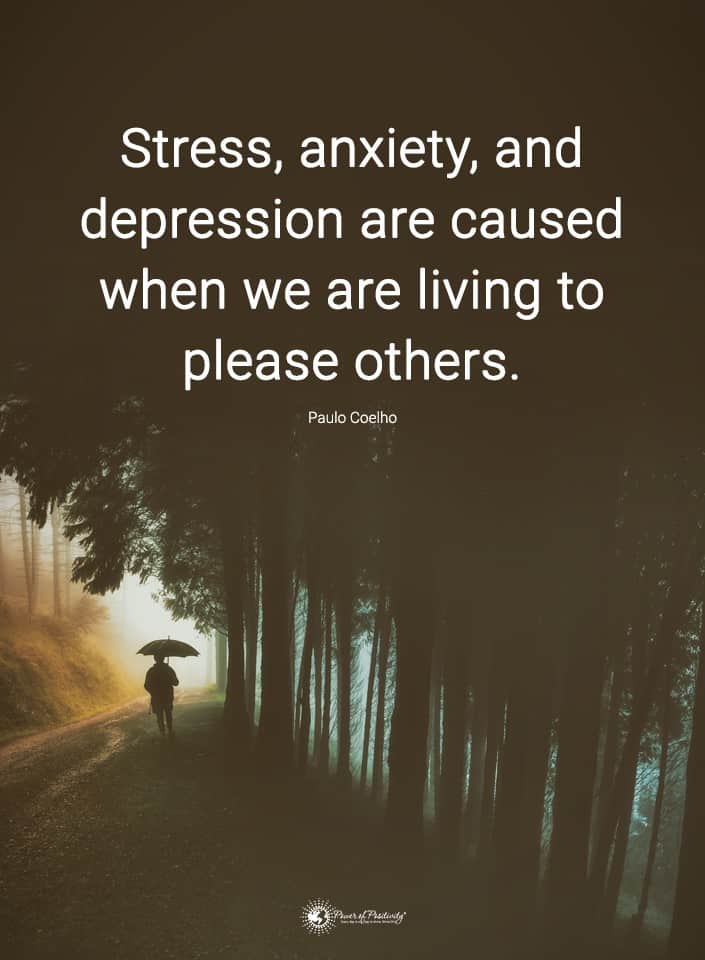Stress is a shared life experience. Work, school, and family responsibilities produce a lot of stress, but when you add the adrenaline-producing events of the world, your stress levels can soar. Learning to deal with stress is critical to protecting your brain. Even amid your stressful life, there are ways to train your brain to deal with stress. Here are some valuable tips on how to train your brain to be stress free.
What events make a stress free life feel nearly impossible?
Many things make your life stressful, but specific life experiences trigger a high level of stress. These include:
- Death of a child or spouse
- Divorce
- Moving
- Major illness or injury
- Marriage
- Loss of a job
- Retirement
How does long-term stress affect your body?
 When you’re experiencing stress, you may not even be aware of how it affects your body. You may have physical symptoms that you don’t attribute to stress. It’s worth considering whether stress causes some of your physical problems. Stress can produce physical symptoms, such as the following conditions:
When you’re experiencing stress, you may not even be aware of how it affects your body. You may have physical symptoms that you don’t attribute to stress. It’s worth considering whether stress causes some of your physical problems. Stress can produce physical symptoms, such as the following conditions:
- Stomach problems
- Autoimmune problems
- Inflammation
- Insomnia
- High blood pressure
- Headaches
If you have any of these physical symptoms, talk to your doctor about the possibility of stress being the root cause. Practice some of these suggestions to relieve your stress.
Why a stress free life is essential to brain health
You may be familiar with the effects of stress on your body, but stress can harm your brain. According to studies, stress messes with the structure of your brain. Chronic stress can atrophy your brain and shrink the area of your brain that affects your memory and learning. These facts are compelling reasons to live a more stress-free life.
How to train your brain to be stress free
Stress harms your brain. Here are some suggestions on how to have a more stress-free brain and reduce the adverse effects.
1 – Get More Sleep
Getting enough sleep is known to be essential for you to function in daily life. But according to recent studies, lack of sleep can make stress worse. It also interferes with your brain’s ability to get rid of toxins such as beta-amyloid, which has been found to attribute to brain disorders such as Alzheimer’s disease. One of the first ways you can train your brain to be stress-free is by getting a good night’s sleep. It’s recommended that you get anywhere from 7 to 9 hours of sleep per night. Try these things to help you sleep better.
- Wind down before bedtime
- Don’t exercise too close to your bedtime
- Limit your caffeine during the day
- Create a bedtime routine and stick to it
- Keep your bedroom cool and dark
- Limit your use of electronic devices a couple of hours before bedtime
2 – Yoga
Yoga uses a combination of physical poses and breathing methods to enhance relaxation. Studies reveal that yoga has mood-enhancing abilities, which slows down the physiological effects of stress. Yoga also can change the chemical reactions in your brain, so you feel less stressed. It’s thought to be as effective as taking anti-depressant drugs for anxiety and depression. Overall, if you regularly practice yoga, you can have a more stress-free brain and body. The five best stress-relieving yoga poses include
- Child pose
- Easy pose
- Happy baby pose
- Stand forward and bending pose
- Seated forward bend
 3 – Don’t procrastinate
3 – Don’t procrastinate
You may not feel that procrastination is that big a deal but having a bunch of open-ended tasks attributes to brain stress. Procrastination makes you think you can’t catch up. You may not sleep, or you can’t focus during the day. Here are some ways to break your procrastination habit to relieve stress.
- Make a to-do list and check off things as you accomplish them
- Give yourself deadlines and stick to them
- Create chunks of uninterrupted time to finish tasks
- Set simple daily goals
- Take breaks to clear your mind
- Reward yourself when you complete a goal
- Stop multi-tasking-stick to one thing at a time
4 – Find faith
According to studies, having faith in God helps you deal with stress. Researchers say people who profess to be religious have lower levels of depression. Having faith in God enables you to find peace even during stressful situations because you believe someone is overseeing your life and helping you get through tough times. Researchers say that faith has a buffer effect between stressful life events and depression in the same study. Devout people have fewer symptoms of anxiety and depression and can cope better with stress. It’s thought that some religious practices can change your brain to boost your mental health. How does faith help your brain deal with stress? Here are some ways, including
Faith gives you a sense of purpose for your life, giving you a sense of purpose that enhances your life.
- Let go of trying to control it all: You can let go of those things that are out of your control when you cede to a higher power.
- Network of support: Having faith gives you a sense of community. You don’t feel alone.
5 – Change how you view stressors
Another way to train your brain to deal with stress is to change how you think about it. Seeing pressure as all bad leads to unhealthy activities such as overeating, drinking too much alcohol, or lack of exercise to relieve the stress. Stress isn’t always harmful. It can motivate you, increase your focus, and help you be more productive. Embracing it strengthens you, happier and more intelligent. Viewing stress positively encourages you to find specific ways to cope with it. So, instead of getting rid of all stress, you can figure out how to have healthier responses to stress.
6 – Exercise for a stress free life
Regular exercise is a natural way to relieve stress in your life. Whether you take your dog for a brisk daily walk, play a game of tennis, or take an exercise class at your local gym, exercise has many benefits for your body and mind. People who regularly exercise are less prone to anxiety than those who don’t exercise. What happens when you exercise?
- Release of stress hormones: When you get your body moving, stress hormones are released, which improves your mood.
- Builds your confidence: Regular exercise boosts your confidence because you feel stronger.
- Helps you slim down: If you incorporate regular exercise into your life, you’ll lose weight and trim down.
- Sleep better: Exercise has been found to promote better sleep, which reduces your stress levels.
7 – Try supplements
Using certain supplements helps you train your brain to be stress-free and reduce anxiety. Here’s a list of some of the best stress-relieving supplements.
- Lemon balm: This herb is a member of the mint family. Use lemon balm to make tea, eat in salads or add it to soups.
- Green tea: Green teas contain antioxidants that help your body heal and reduce stress. Add it to your smoothies or drink it as warm.
- Valerian: This herbal remedy might help you sleep and thus, lower anxiety. An NIH fact sheet found valerian to be helpful for some people but not for others. However, it is worth a try.
8 – Aromatherapy
Aromatherapy is made of natural plant extracts or essential oils to enhance healing and a sense of well-being. They have proven it to promote emotional health and relaxation. It’s gained a lot of popularity over the past few years as people have found it helpful to reduce stress. Some of the health benefits include
- Relieves anxiety and stress
- Improves your sleep
- Improves your quality of life
- Can ease the effects of cancer treatment for things like pain and nausea
9 – Journal your way to stress free living
Writing your thoughts and feelings in a journal gives you a positive outlet for your senses. When you’re in a stressful situation, you must understand what you’re feeling, and writing your thoughts helps you sort out your feelings. Writing gives you clarity on details and enables you to decide your next move. Journaling can have a positive effect on your stress reduction.
10 – Learn to say no
Sometimes you need to say “no” to relieve the stress in your life. It’s easy to get pulled into commitments like being the parent who always brings snacks to your child’s class or the person at work who always helps when there’s a deadline. If that’s you, maybe you need to learn to say no. You may be your own worst enemy by over-committing or feeling guilty when there’s a need. It’s okay to refuse to help. Take control of your stress. Be selective about what you commit to, and you’ll be surprised how hit helps you train your brain to be more stress-free.
12 – Laughter
Laugher lessens your stress. It gets your focus off your problems, frees up chemicals in your brain that make you feel happier, and improves your view of life. Laughing is a simple way to train your brain to let go of stressful things. It doesn’t change your circumstances, but it gives you a break from them. You can laugh or cry when things turn stressful. So, why not choose to laugh?
 Final thoughts on how you can train your brain to be stress free
Final thoughts on how you can train your brain to be stress free
Stress is a genuine part of life. It can be a helpful motivation to accomplish things or damaging to your brain and body. How you view stress and react to it determines its effects on you. As you train your brain to be stress-free, you can have a stress-free life. Whether you choose to relieve your stress through regular exercise, journaling, or growing your faith, you’ll feel more relaxed and happier about your life. Stress reduction isn’t hard, but it’s a choice you can make for a better life.



















